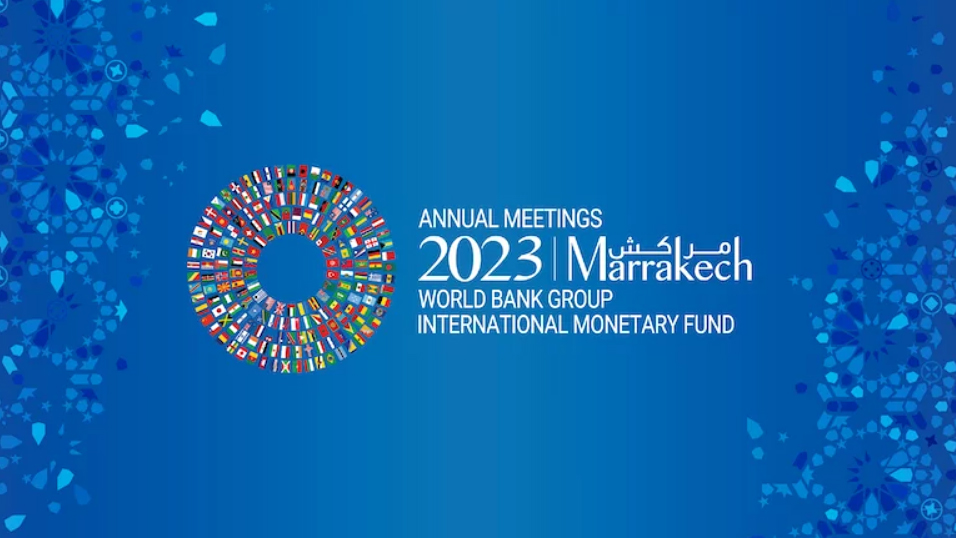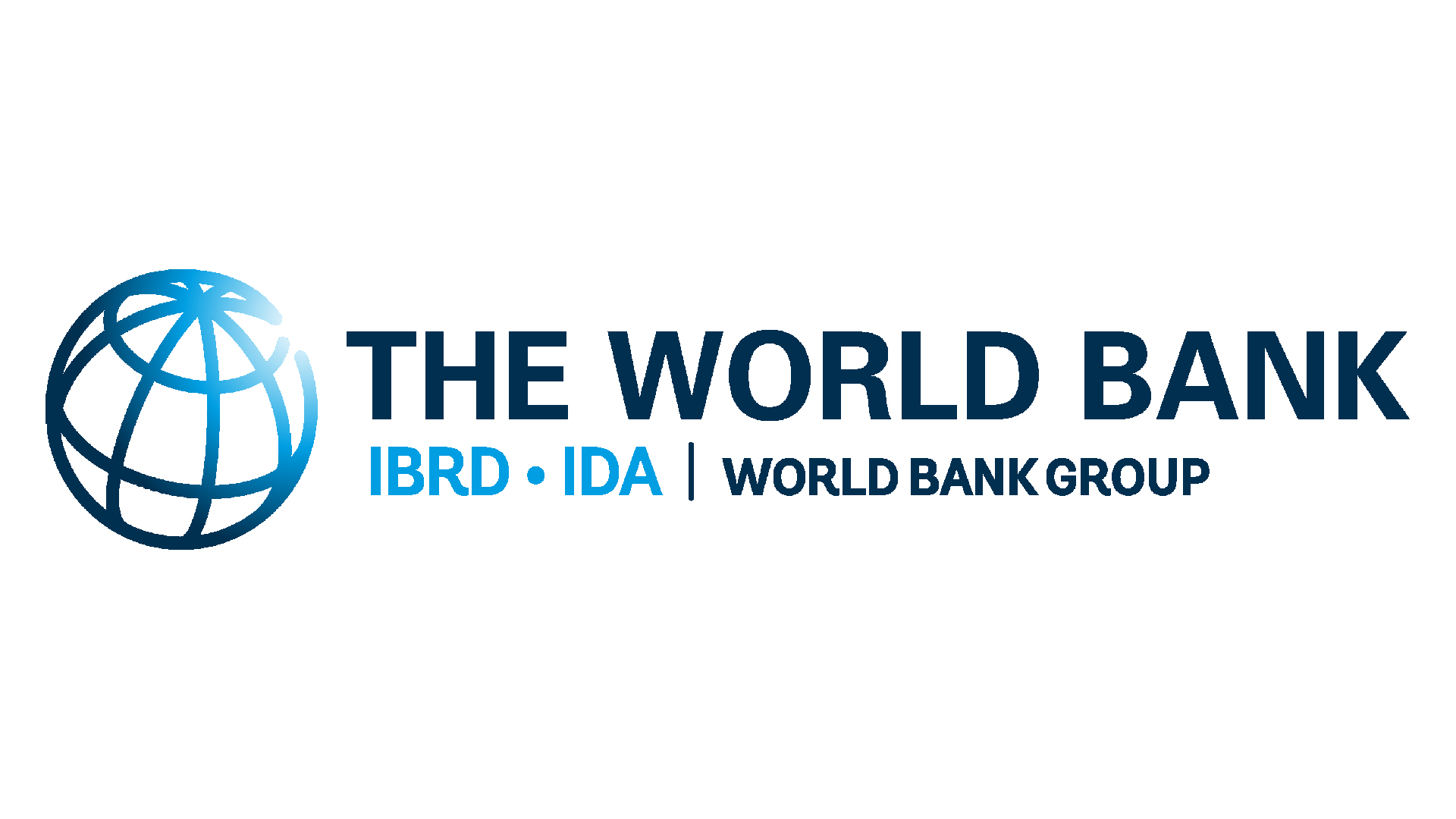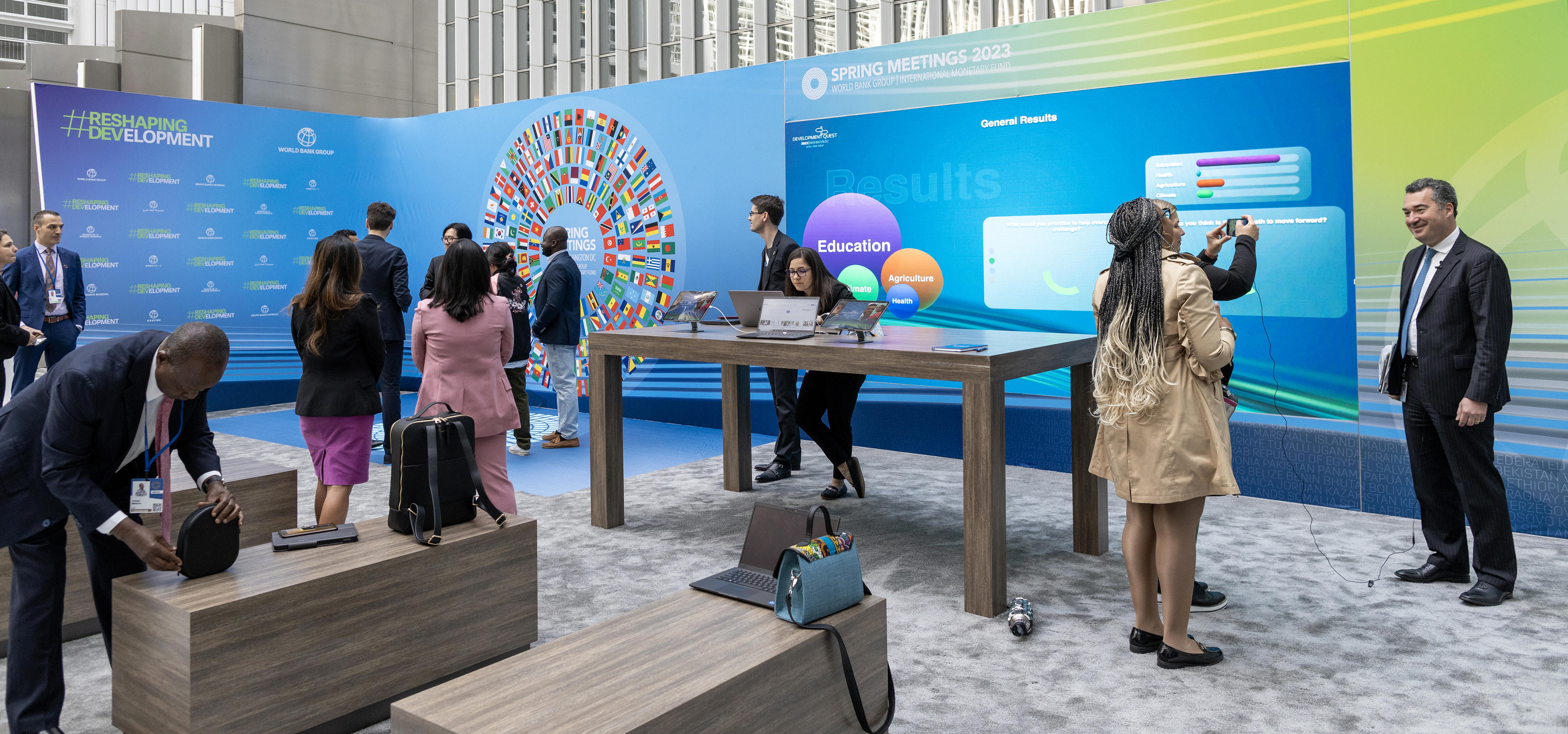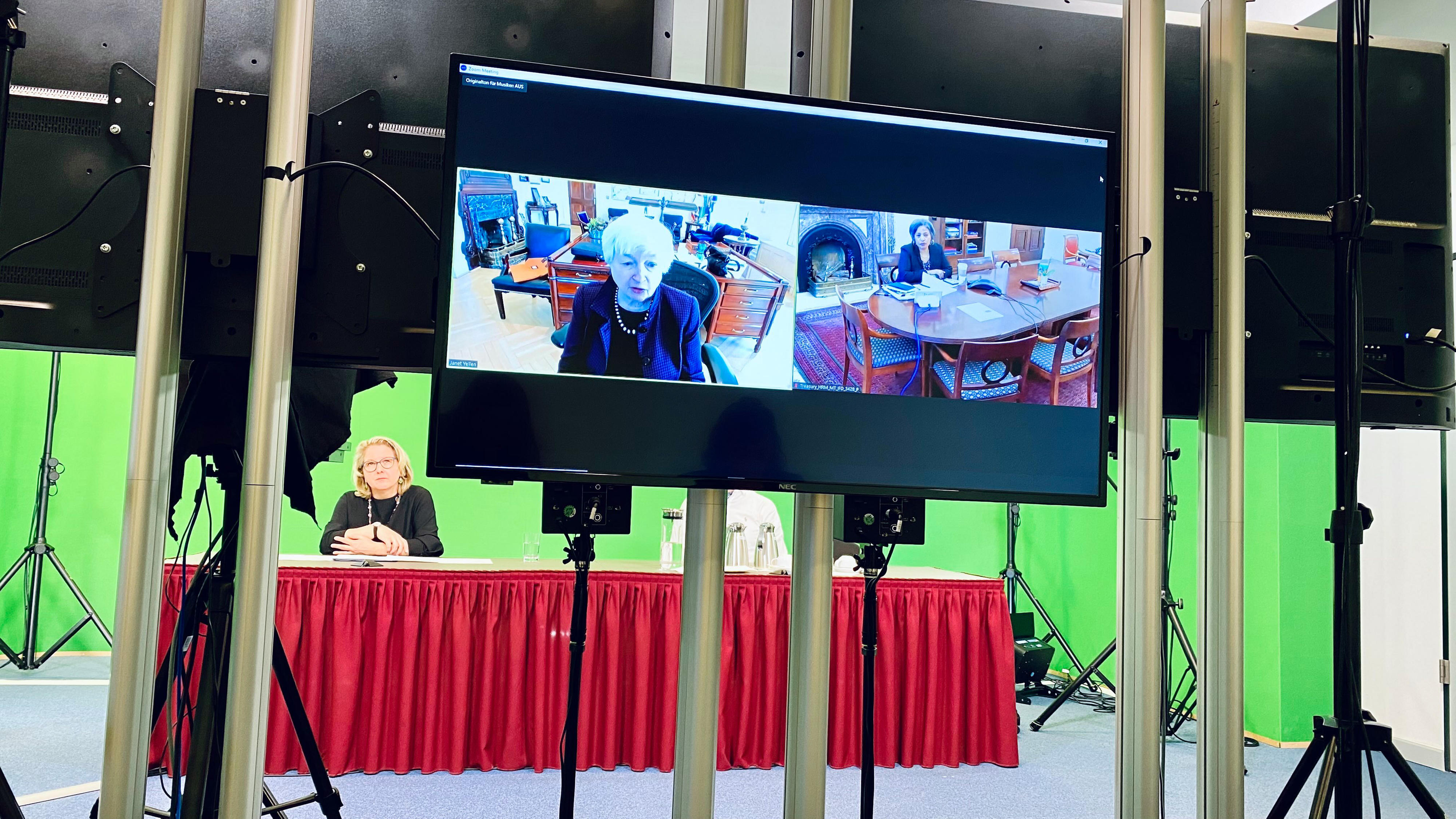Annual Meeting in Marrakech World Bank reform endorsed: More investments in climate action and other global development goals
Development Minister Svenja Schulze said, “This endorsement shows that global organisations like the World Bank are also able to reform themselves. This reform will get the World Bank moving with the times. It is no longer possible in the 21st century to successfully fight poverty without also getting involved in protecting vital natural resources. The World Bank is the most important global organisation for development financing. It will have an even greater role to play in the future, when it comes to realising the global energy transition, preventing the next pandemic or protecting the rainforest. As a Governor, I intend to make sure that this reform is implemented systematically.”
At the World Bank Annual Meeting one year ago, Development Minister Svenja Schulze, together with other shareholders, had called on the Management of the World Bank to draw up a reform aimed at making the Bank better able to support developing countries in dealing with global challenges like climate change. Since then the World Bank has been gradually preparing a package of reforms over the last few months that was adopted today at the meeting of the World Bank governors.
The package of reforms comprises three main elements:
First, a new guiding vision: The World Bank is now working for a “world free of poverty on a liveable planet”. This means that the global dimension of – for example – protecting vital natural resources is now a fundamental task for the Bank.
Second, adapting the Bank’s business model in line with this new guiding vision: New incentives will be put in place in order to foster investments in climate action and environmental protection, peacekeeping and pandemic prevention. This is meant to make it pay more in future for countries to also invest in projects that are not just for their own benefit – for example, protecting rainforests or preventing pandemics. Such incentives can be provided by offering cheaper credit, through concessional terms and conditions, or via loans with longer tenors. The target group here is, in particular, middle-income countries that are especially vulnerable to climate change or other external shocks, for example small island states. The reform also includes the possibility of putting climate-resilient debt clauses in loan agreements. If a country is hit by a natural disaster, it will be allowed to temporarily suspend its debt repayments during the crisis. This means it will have the financial space at that moment to fund its response. The World Bank will now begin piloting this option for small states that are particularly affected by climate change.
Third, more funding: Besides building a “better bank” that is more able to address global challenges, the reform also has the aim of mobilising more funds for tackling global crises with a “bigger bank”. Germany is supporting this part of the reform as a trailblazer: it will be the first country to provide 305 million euros of “hybrid capital”. This will mean that, over the next ten years, the World Bank will be able to mobilise an additional 2.4 billion euros and expand its investments to include fighting global challenges. The Bank has also taken other steps as part of the reform. One example is that the mandatory equity-to-loan ratio of 20 per cent has been lowered to 19 per cent. Over the next ten years, an additional volume of more than 50 billion US dollars can be mobilised with these measures.
Minister Schulze said, “With the reform we will make the World Bank into a better bank that uses its funds in a more targeted way. On this basis we also want to follow the call by many developing countries for a bigger bank. Thanks to the reform, the World Bank will be able to provide more funds for poverty reduction and climate action. But we will not let up in our commitment now this important reform is underway. We will widen our gaze beyond the World Bank and take a look at improvements in the whole system of development banks. We want this reform to have a ripple effect and setting new standards.”
The World Bank has an important role to play in tackling global crises. With its financial capacity so far of around 100 billion US dollars a year, it can play a crucial role in driving forward the investments needed for the social-ecological transformation of the global economy. Thanks to the reform, its capacity will be further increased. In addition, the World Bank sets standards for other development banks and private donors, which frequently apply the same analysis standards and assessment matrixes for their own lending.
The Annual Meetings of the World Bank and the International Monetary Fund are traditionally held in conjunction. German Development Minister Schulze is Germany's Governor at the World Bank Group. Germany is the World Bank's fourth largest shareholder.



